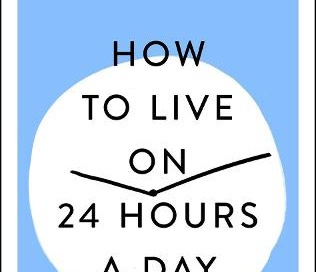I admit it. I’m a sucker for a productivity hack. So much so that sometimes I try to combine activities for maximum efficiency. On my drive to work when I lived in London, I decided to combine driving with listening to calming meditations. I used to play a destressing meditation, while simultaneously swearing away at the traffic on the always-packed Great West Road, while a soporific voice told me to breathe out the anxiety and breathe in new energy.
Rather than breathing in golden light, about the only thing I was taking in was a lungful of exhaust fumes. Even when I cycled to combine commuting and exercise, I suffered more popped tyres on the Great West Road that anywhere else in London.
Is any of that healthy and stress-relieving?
(Spoiler: no).
Over the years I’ve tried to outpace my own thought processes, overcome my natural tendency towards untidiness through army-style discipline, and pretend to myself that I am the kind of gal who can get up at 5.30am and do a complicated morning routine. I love my own optimism, but it is not me.
The truth is, I LOVE productivity hacks. I love a weird, shoehorned-in acronym to tell me everything I should be doing. I’m forever marvelling at people who seem to swan through their days with a calm expression, a handbag full of useful things, and a gentle breeze swaying their blow dry.
The 1908 book How to Live on 24 Hours a Day by Arnold Bennett is a classic.
Despite being over a century old, nearly all the advice is so wise and fresh it could have been written last week.
First of all: your working week is 40 hours. Your week is 168 hours. What are you doing with the remaining 128 hours?
He accepts that commuting, eating and sleeping takes time, but challenges the thought: are you making the most of your time? Are you really?
Obviously, in 1908, Arnold probably wasn’t doing much of the housework himself, but at the same time, not many of us are doing the washing with a dolly tub and a mangle nowadays, so there are pluses and minuses on both sides.
I highly recommend this funny, thought-provoking and accessible read, but for productivity’s sake, in case you’re too busy to read it, here are some of the best pieces of advice:
Everything outside the work day is its own separate entity - your free time is your own to own as you wish
Learn to focus properly, building up to 50 minutes
Learn something new. Try a few times a week to gain knowledge about a particular subject
Use the time you have carefully - think about any spare time when commuting, late in the evening, or in early morning, to build on your hobby or learn something new
Read widely and wisely and use your time to deepen your understanding
Over the course of a year, he says, you will have the space and time to learn a lot about subjects, and use that as a foundation to build on.
It’s such a tonic compared to the frantic every-moment-must-count of some productivity - I always feel like lying down for a sleep when I read Rudyard Kipling’s line about ‘filling the unforgiving minute with 60 seconds of distance run’ as it sounds so exhausting, but How to Live on 24 Hours a Day is about making the most of life, and who could disagree with that?
Have you read this cult classic? Let me know!





This is SO hard for me cos there's a lot of crossover between work life and my writing life so can be hard to switch off. Plus if i want to get any writing done i have to do it after a full day at work until i can get someone to pay me to do it full-time!!!
This essay shows how much time outside the working day is still spent on things related to work. It's a tough nut to crack!
https://theanarchistlibrary.org/library/bob-black-the-abolition-of-work